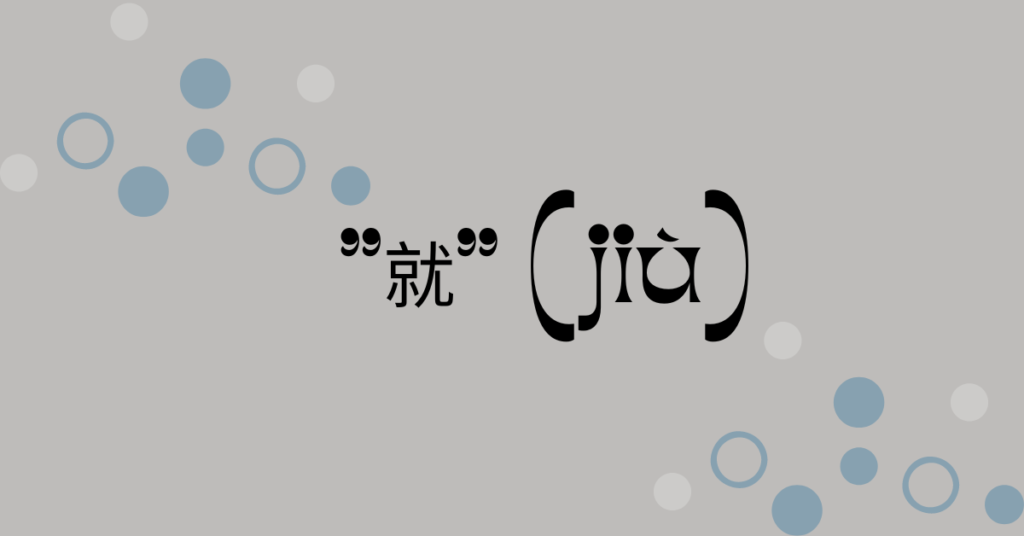
Here’s a detailed explanation of the usage of “就” (jiù) meaning ‘just’ in Chinese, along with examples:
1. 就 (jiù) meaning ‘just’:
Usage: “就” (jiù) is an adverb used in Chinese to indicate the meaning of ‘just’ in various contexts. It is used to express the idea of ‘only,’ ‘merely,’ or ‘just’ in relation to time, actions, or situations.
- Example 1: 我就要离开了。(Wǒ jiù yào líkāi le.) – “I’m just about to leave.”
- Example 2: 他就吃了一点儿。(Tā jiù chī le yīdiǎn er.) – “He just ate a little bit.”
In these examples, “就” (jiù) is used to indicate a sense of immediacy or the minimal extent of an action or situation, emphasizing the idea of ‘just’ or ‘only.’
This pattern is commonly used in Chinese to convey the notion of something happening or being done with a limited or immediate scope. It suggests a specific point in time, a small quantity, or a straightforward action. Here are a few more examples:
- 我就给你寄一封信。(Wǒ jiù gěi nǐ jì yī fēng xìn.) – “I’ll just send you one letter.”
- 他就住在这个小村庄里。(Tā jiù zhù zài zhège xiǎo cūnzhuāng lǐ.) – “He lives right in this small village.”
By using “就” (jiù) meaning ‘just’, you can effectively convey the idea of immediacy, limitation, or a minimal extent of an action or situation in Chinese. It adds precision and highlights the specific focus of the subject being described.
Dialogue
Person A: 我好饿了,你们想吃什么?
(Wǒ hǎo èl e, nǐmen xiǎng chī shénme?)
(I’m so hungry, what do you guys want to eat?)
Person B: 我们就去吃那家新开的意大利餐厅吧!
(Wǒmen jiù qù chī nà jiā xīn kāi de yìdàlì cāntīng ba!)
(Let’s just go eat at that newly opened Italian restaurant!)
Person A: 好主意!那家餐厅的口碑很好,我也一直想尝试。
(Hǎo zhǔyì! Nà jiā cāntīng de kǒubēi hěn hǎo, wǒ yě yīzhí xiǎng chángshì.)
(Great idea! That restaurant has a good reputation, and I’ve been wanting to try it too.)
Person B: 我们就先打个电话预订位置,以免到时候没位子。
(Wǒmen jiù xiān dǎ gè diànhuà yùdìng wèizhì, yǐmiǎn dào shíhòu méi wèizi.)
(Let’s just call and make a reservation first, so we don’t end up without a table later.)
Person A: 对,就这么办!
(Duì, jiù zhème bàn!)
(Yes, let’s do that!)
In this dialogue, “就” (jiù) is used to express the idea of “just” in different contexts. Person B suggests going to the newly opened Italian restaurant, emphasizing the specific choice. Person C suggests making a reservation, highlighting the necessary action to secure a table. Person A agrees with both suggestions, reinforcing the decision to go to the restaurant and make a reservation. The use of “就” adds emphasis to the simplicity and directness of the actions being discussed.
Exercise
- Create your own sentences using “就” (jiù)